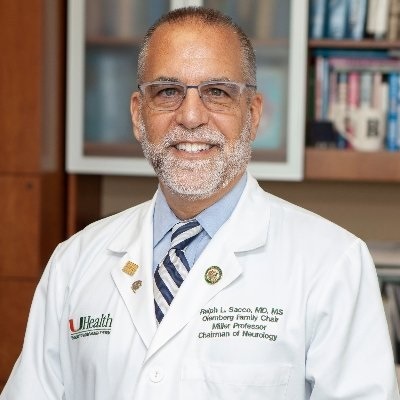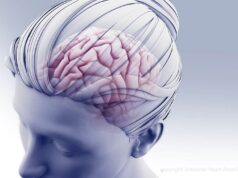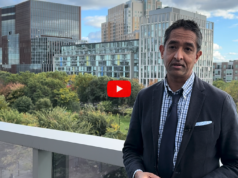
Esteemed neurologist Ralph Sacco passed away at the age of 65 earlier this month, and a number of prominent neurology and stroke societies have since paid tribute to him and his achievements in the field.
Sacco’s obituary in the journal Neurology details that he was the only physician to have served as both the president of the American Heart Association (AHA), from 2010–2011, and the American Academy of Neurology (AAN), from 2017–2019, and the first ever neurologist to serve as president of the AHA as well.
Among those to have paid tribute to Sacco are AAN president Orly Avitzur, who said: “Dr Sacco’s achievements belied his humility, a trait equally appreciated by friends, associates, trainees, and patients whose lives and careers he indelibly touched over the years.”
AHA CEO Nancy Brown stated that “Ralph’s death leaves a void in the lives of all who knew him and the organisations he so faithfully served”, while European Stroke Organisation (ESO) president Peter Kelly noted that “he will be remembered as an outstanding clinician-scientist, a role model, a leader, and a friend to many in the field of stroke medicine”.
A graduate of Cornell University (Ithaca, USA) and a cum laude graduate of Boston University School of Medicine (Boston, USA), Sacco received a master’s degree in epidemiology from Columbia University School of Public Health (New York City, USA).
He completed his neurology residency and postdoctoral training in stroke and epidemiology at Columbia Presbyterian—also in New York. Prior to his move to the University of Miami (Miami, USA) in 2007, Sacco was a professor of Neurology, and chief of the Stroke and Critical Care Division, at Columbia University.
While at Columbia, he established the Power to End Stroke initiative with the AHA, focusing on stroke prevention in African-American communities, and was the founding principal investigator of the multi-ethnic Northern Manhattan study (NOMAS)—which contributed to an important body of clinical science clarifying the role of modifiable risk factors for stroke across ethnic groups in the USA, informing subsequent policy and prevention initiatives.
Sacco held a number of titles throughout his tenure at Miami’s Leonard M Miller School of Medicine, including professor of Neurology; Olemberg Family chair in Neurological Disorders; Miller professor of Neurology Public Health Sciences, Human Genetics and Neurosurgery; executive director of the Evelyn McKnight Brain Institute; and senior associate dean for Clinical and Translational Science. He was also chief of the neurology service at Jackson Memorial Hospital (Miami, USA).
He continued his research in Miami, leading the foundation of initiatives like the Florida Stroke Registry, the Florida-Puerto Rico Collaboration to Reduce Stroke Disparities, and the Family Study of Stroke Risk and Carotid Atherosclerosis.
As well as being the co-investigator of multiple other National Institutes of Health (NIH) grants, Sacco published more than 1,000 peer-reviewed articles across a number of areas, including stroke risk factors, prevention and treatment, and vascular cognitive impairment and human genetics. In 2019, he was made editor-in-chief of the journal Stroke.
An international expert in stroke epidemiology and health disparities, he was awarded the AAN Wartenberg Lecture, the AHA Feinberg Award of Excellence in Clinical Stroke, and the World Stroke Organisation (WSO) Global Stroke Leadership Award, as well as numerous other honours. He was also the inaugural recipient of the Edgar J Kenton III Lecture Award from the American Stroke Association (ASA).
Sacco passed away due to a brain tumour on 17 January 2023. Subsequent tributes have noted that he died peacefully at his New York home in the company of family, including his husband, Scott Dutcher.













